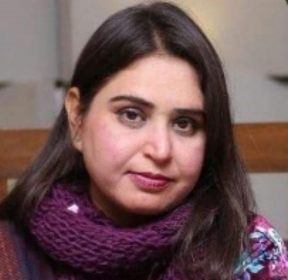
Farhana Nosheen
PakistanTitle: Impact of Lipid-based Nutrient Supplementation for Pregnant and Lactating Women Provided by World Food Program
Abstract:
Statement of the Problem: A major global issue is inadequate nutrition among expectant and lactating mothers. Micronutrient deficiencies (MNDs) have a wide range of effects on fetus, such as stunted growth, intellectual impairments, development difficulties, and elevated morbidity and mortality risks. Lipid-Based Nutrient Supplements (LNS) have been suggested as a viable remedy to improve the nutritional status of expecting and lactating mothers to address MNDs. In Pakistan, the WHO started the LNS-PLW initiative under the World Food Program and with the Government of Pakistan incorporated it into the basic healthcare system. The purpose of this study is to evaluate the effectiveness of LNS in pregnant and lactating women and to determine the extent of micronutrient deficiency in pregnant and lactating women of the 2nd and 3rd trimesters. Methodology & Theoretical Orientation: An Assessment, biochemical, and dietary study were utilized during impact assessment report. The sample of 160 women were taken, and anthropometric measures, CBC, dietary histories, and demographic information were obtained using the nutritional assessment form Findings: The results showed that the majority of women were between the ages of 26 and 30, had low socioeconomic status, and were illiterate. A paired sample t-test revealed a significant difference in hematocrit HCT in the control group. In the interventional group receiving LNS, significant differences were found in WBC (p-value 0.036), RBC (p-value 0.015), HGB (p-value ≤ 0.000), and HCT (p-value 0.017). Additionally, there was a significant difference in HGB (p-value 0.086) levels between the control and interventional groups, indicating improved nutritional status among those receiving LNS. Pearson chi-square testing showed a significant difference (p ≤ 0.05) in the physical condition of pregnant and lactating women in the control group, particularly in skin, nails, and hair conditions after three months. The significant differences were noted in the MUAC of pregnant women (p-value 0.024) and lactating women (p-value ≤ 0.000) in the interventional group receiving LNS supplements. Thus, it was concluded that there is micronutrient deficiency among lactating and pregnant women from low socioeconomic status. Physical exams or psychological issues were not significantly impacted by LNS; however hematological parameters, and MUAC, depicted significant changes. Notably, LNS supplements have shown promise in raising HGB levels, which makes them a recommendation for anemic women or other nutritional deficiencies during pregnancy and lactation. A country-level action is required to improve food safety regulations to promote the fortification of food and to develop food-based dietary guidelines.
Biography:
My professional and research focus is food and Nutrition of community significance using conventional and community based integrated approach. Major area of interest is women and child health & nutrition, extension agricultural education, skill development and entrepreneurship in food and agriculture sciences. I am involved in various graduate disciplines like food & Nutrition, Climate Change, community development, rural development and Public Health which allows me to inter-link various facets of the food nutrition and agriculture. Presently, I am working Associate Professor and chairperson of Home economics department, GC University Faisalabad, Pakistan. I have been win competitive grants from national and international funding organizations as PI/ Co-PI and mentored >40 M.Phil. and PhDs as supervisor. The GC University Faisalabad awarded me Research Productivity Awards consecutively for the 5 years (2018-2023). I have published ~50 research papers in ISI indexed journals having IF, one text book titled Women in Agriculture in Pakistan.

